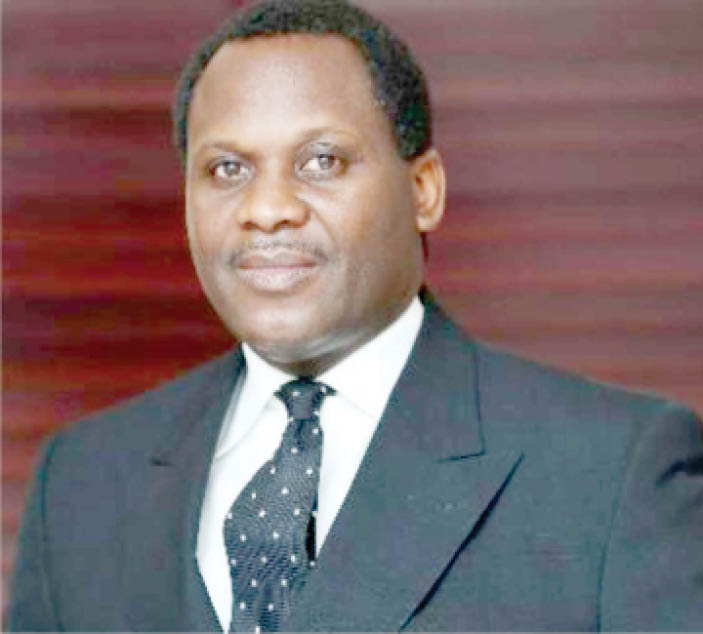The Executive Vice-Chairman/CEO of the Federal Competition and Consumer Protection Commission (FCCPC), Barrister Babatunde Irukera, in this interview with Daily Trust, speaks on the rising contempt about electricity tariff and fair pricing, and the efforts towards tackling harassment of customers by digital money lenders. Except:
What is your take on the current electricity tariff review and how can we arrive at a fair price template?
With respect to electricity, there is an MYTO (Multi-Year Tariff Plan) and it is a statutory framework and the future of the fairest possible electricity market is to be designed with a tariff methodology in line with best practices because that is what is obtainable in other climes like England among and others.
There must be a matrix to determine if there is price gouging and there has to be a way to determine gouging because something could have a reasonably low price and still be price gouging, and it could have a high price and may not be price gouging.
- Support modular refineries in Niger Delta, PANDEF urges FG
- 1 killed, several shops burnt as Imo govt demolishes Hausa settlements
For instance, during COVID-19, we prosecuted a pharmaceutical store for price gouging because we discovered that a hand sanitiser that sold for N490 for years all of a sudden, started selling at N3,000 on the same day the first case of COVID-19 was announced in Nigeria by the minister of health which made people apprehensive. So, in that case, you could see that it was an unreasonable approach to pricing.
Using electricity as an example, we have seen that the privatization of the public enterprise was faulted and that was because there wasn’t a competition agency. The FCCPA came after that. The DisCos have their franchise areas and we literally created a private monopoly.
We know a public monopoly is very bad, but there is only one thing in the world that is worse than a public monopoly which is a private monopoly because there is no incentive to be innovative but there is a motivation for profit.
So to me, the only way to unlock the electricity market is transparent billing. Far more so than the real tariff. The first approach to transparent billing is to meter everyone because estimated billing is unreasonable which is why we need to make estimated billing unattractive in a way disCos can still make money from meter billing.
In the case of metered billing, we are beginning to see meter manipulation even by DisCo staff so the approach is to make it more transparent and if a cap regulation is enforced, the pressure in the electricity market will come down and it will unlock the bottlenecks.
With PMS, the question is what is the fairest price and I will tell you, it is the price determined through a negotiation between the buyer and the seller in a free undistorted competitive market. Because if there are competitive sellers there will be competition on who gives the best price.
When competition is both ways, there will be a fair price. So, if there are cartels for fixing prices, it is distorted already and you won’t have a fair price. So that is our role as a competitor to focus on all the elements that make the market competitive. Our focus is working with regulators to ensure a fair price.
However, the subsidy is just being removed and we are in a transition period so there is a consumer protection approach to monitoring to ensure fair price.
What are your plans for tackling the continuous harassment of customers by digital money lenders?
Concerning digital money lenders, what we did was to lead a task force and we gathered as much intel as we could because things were already getting out of hand. We introduced a regulatory guideline and started working with financial institutions and Google and the collaboration led to compliance.
Initially, we didn’t know these companies so we had to keep tracing and intelligence gathering and they didn’t have to trace so now we have to know who you are and your physical presence and software and the source of funding and ensure you don’t download and have the privacy of people so we engaged the data protection commission.
As such if we don’t register your business, Google will not put you on Playstore. That has worked but I will say in the last six weeks there has been an alarming return to the practice because of the cash crunch, because the traditional banking institutions can’t provide loans and take the risk that digital money lenders take.
So we understand that there is gap which is why we never succumb to the pressure to bank them because one way or the other they contribute to financial inclusion.
So what we have done is register them and ensure they carry their business legitimately even though it is not a guarantee that they won’t violate our process.
What we learnt of some of them was that they were engaging in illegitimate recovery practices and we are sorting that out. But those defamatory statements if we discover that, we will deregister you and ask Google to take you down and ask the law enforcement agencies to prosecute you, and your business in Nigeria will be illegal.
Most of the complaints we discovered were not with the ones we registered, and recently most people are impersonating the ones we registered legitimately. We have taken down two and by Monday we are taking down a dozen.
Our expectation for the long term is to ensure that licensing is regulated more by the financial sector regulator and that is why we anticipate a more standing and robust framework that would emerge.
What are you doing to encourage companies to create complaint resolution platforms?
To ease our work, we have created a plugin for companies. It is an aggregator as complaints against you come, we are pushing it out to you. So government is now creating an electronic platform for business which shouldn’t be and it will end up with us mandating regulations because you cannot subordinate consumer satisfaction to other things.
There is the perception that FCCPC is quick to wield the big stick on only private firms but ignores public agencies rendering poor services…
Perception can be flawed and it is also the lack of understanding of our mandate. Our core mandate is to regulate commerce; government agencies fall under our purview only when it engages in commerce.
When government doesn’t do anything for profit or commercial value, it is not our business. For instance, if the federal government or any state government has a mass transit that makes profits, then we engage, but for those providing service alone, our statutory mandate doesn’t extend to that. As such, what we are doing is supporting the process not necessarily failing in our mandate.
The agency in charge of complaints on government agencies in the SERVICOM. We allocate our resources more to sensitizing people to their rights.
How many regulatory enforcements have you carried out so far this year?
We have at least five extremely large investigations that are still open. Some of our investigations take a while. For instance, we have investigations of our major big tech platforms that have been on for some time. We have investigations going on shipping companies and airline ticket racketeering among others.
So complex investigations take time but by the end of the year, we will ascertain how many there are especially the big ones. But we have done enforcements on digital money lenders and the PoS operators.
Are you deploying technology in your operations and, are you planning to expand?
The reason why we are successful in our operations is because we use technology to aid enforcement. Although we don’t have enough boots on the ground, recruiting may not be the option but building robust platforms to improve. Government recruitment is complex and it is prioritised.
Before I came in, law enforcement and revenue collection agencies were prioritized over just revenue collection agencies and we were not prioritised but now we are autonomous and paying our salaries ourselves so gradually we will expand.

 Join Daily Trust WhatsApp Community For Quick Access To News and Happenings Around You.
Join Daily Trust WhatsApp Community For Quick Access To News and Happenings Around You.


